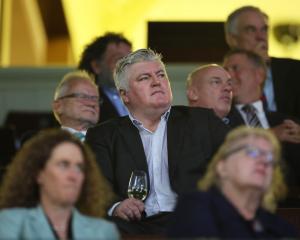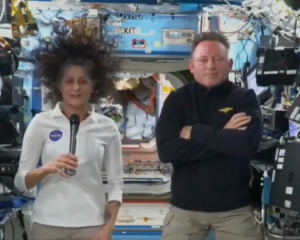The discovery of Chinese babies falling ill with kidney stones consumed milkpowder sold by Fonterra-controlled Sanlu Group is starting to have repercussions outside China.
The United States Food and Drug Administration has warned consumers to avoid infant formula from China, and New Zealand food safety officials are checking dairy products sent from China, even though no infant formula is imported.
China's Health Ministry today ordered a nationwide probe of milkpowder linked to the rash of kidney stones in infants, and one death.
"Those responsible will face serious punishment," said a ministry spokesman, Mao Qunan, quoted by the official Xinhua News Agency.
In seven provinces, hundreds of babies have been reported ill with kidney stones, and most of those babies are said to have been drinking Sanlu milkpowder.
Reports quoted doctors as saying many of the patients suffered from rare acute renal shutdown, an enlarged kidney and vomiting.
Sanlu has said some of its milkpowder was contaminated with melamine, a chemical used in plastics, which has previously been illegally used to boost perceived protein levels in standard tests for foods.
Asked yesterday what concern it had that its staff or workers for Sanlu might be prosecuted for any perceived role in the latest food safety scandal, Fonterra said: "It is not helpful to engage in speculation at this time".
"The appropriate authorities need to get to the bottom of this issue first."
Fonterra, which theoretically has control of Sanlu through its 43 percent shareholding, said today it was advised the company had a "quality issue in its products as a result of receiving defective milk in China".
The company "has advised us that they have recalled product in China and have put new milk quality testing procedures in place".
"We are pushing hard to make sure that Sanlu is working closely with the Chinese Government to ensure that everything that can be done, is being done."
Sanlu, based in Shijiazhuang, a city southwest of Beijing, is China's biggest producer of milkpowder - about 6800 tonnes a day or equivalent to 18 percent of the market, according to government data.
Xinhua and the official China Daily newspaper reported Sanlu had recalled 700 tonnes of the product.
Fonterra said it understands the contaminated product is only sold in China, though Sanlu exports a small amount to Taiwan.
Today, the New Zealand Food Safety Authority (NZFSA) announced it is testing infant formula sold here after the scare, and is looking at dairy produce imported from China.
NZFSA deputy chief executive Sandra Daly told NZPA customs records showed no New Zealand infant formula was imported from China, but it was going ahead anyway with testing the infant formula sold here.
"The first results are expected to be available early next week and will be published on the NZFSA website," she said.
New Zealand imports small amounts of conventional dairy products such as milk, milkpowder and cheese from China, Ms Daly said.
Any products identified as containing Chinese dairy product are being tested.
China's Health Ministry has warned mothers against feeding children Sanlu brand milkpowder, though it has not blocked its sale.
Fonterra has predicted that eventually China will account for 10 percent of its global dairy market.
It paid $NZ150 million - 864 million renminbi - for its stake in the Shijiazhuang Sanlu Group dairy company in December 2005.












